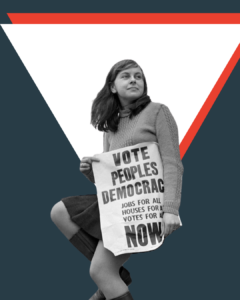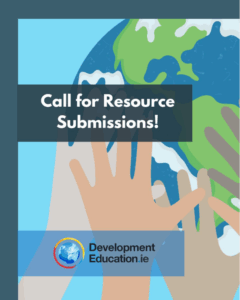Who we are
Fahma Mohamed, Integrate Bristol with the backing of UK newspaper The Guardian newspaper in the UK.
What we did
17-year old Fahma Mohammad from Bristol, one of nine daughters in a Muslim Somali family who came to Britain when she was seven, had been working with a local organisation, Integrate Bristol, on the issue female genital mutilation (FGM), which some of her classmates had endured.
One estimate is that around 65,000 women in Britain have undergone some form of FGM, the highest number in Europe. Fahma felt strongly that teachers weren’t talking about it enough in schools, so started a petition calling on Education Secretary Michael Gove to write to all schools urging teachers to talk to students about it before the next summer holidays in a bid to protect girls from being mutilated during the “cutting season”.
How we did it
Within 20 days of calling on the government on change.org petition to put education at the heart of tackling FGM the petition had attracted nearly 250,000 petition signatures as part of a wider campaign involving The Guardian newspaper. No-one thought that Michael Gove would agree – but he did ask her and her friends into a meeting at the department for education.
Were we successful?
An hour after Fahma walked into a meeting with her five friends, the Education Secretary Michael Gove’s agreed to write to all headteachers in the UK within two months and include guidance relating to keeping children safe, specifically including material that will enable everyone working with young people to tackle female genital mutilation.
Fahma’s example has inspired anti-FGM campaigners around the world, including US-based FGM survivor Jaha Dukureh to lead a change.org petition in 2014 to improve data collection on women and girls in the US impacted by FGM and at risk of mutilation against a ‘a culture of silence about FGM in America’, garnering over 200,000 signatures. Jaha later became the leading campaigner against FGM in the Gambia, where FGM was banned in 2015.
- This case study has been adapted from #BeyondTheClick: a toolkit for exploring global digital citizenship by 80:20 Educating and Acting for a Better World.
Features, blogs and more

Beth Doherty: Youth Activism and the Climate Crisis
From School Strikes to Global Climate Talks The latest episode of the Irish Global Solidarity in 100 Objects podcast features Beth Doherty, climate activist and

Mary Lawlor: Defending Human Rights Defenders
A Conversation with the UN Special Rapporteur for Human Rights Defenders The latest episode of the Irish Global Solidarity in 100 Objects podcast features Mary

Irish Women in Activism and Advocacy: In Awe of All Mná
Explore inspiring stories of Irish women in activism and advocacy who have fought for human rights, social justice, and equality at home and abroad

Call for resource submissions open – education resources during an era of climate promises, disinformation and pandemics
Submit or recommend resources to be included in the Ireland-wide audit of development education and global citizenship education resources.

Podcast: If Another World Is Possible, It Is Up to Us to Make It So
A Reflection on Palestinian Solidarity and Collective Action In this episode of the Irish Global Solidarity in 100 Objects podcast, Ciara Regan revisits her 2021

Podcast: Exploring Global Citizenship with a Ball of String
The Power of Simple Tools in Teaching Global Citizenship Sometimes, the most impactful lessons come from the simplest tools. In this episode of the Irish
